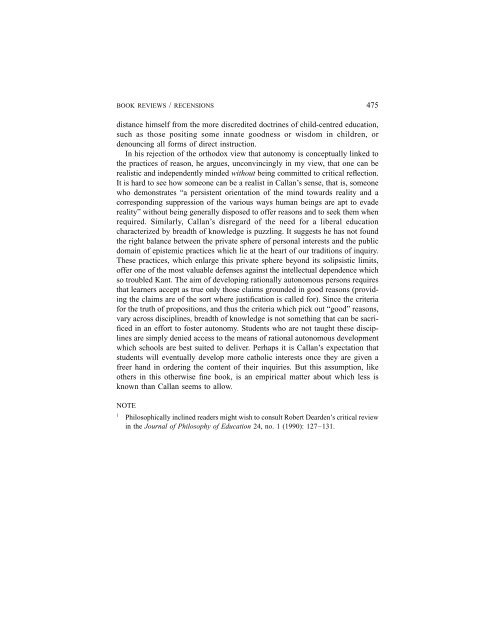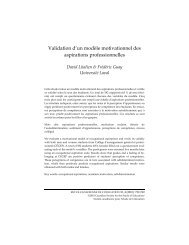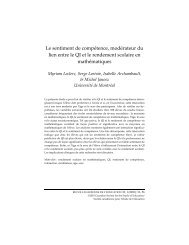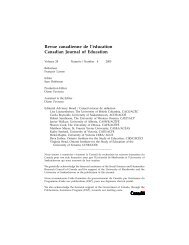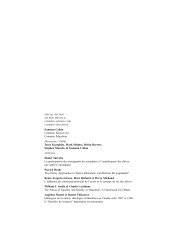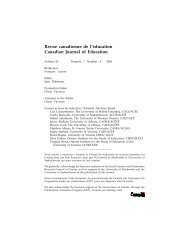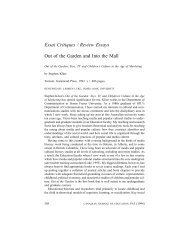Mireille Falardeau et Michel Loranger Le choix de stratégies ... - CSSE
Mireille Falardeau et Michel Loranger Le choix de stratégies ... - CSSE
Mireille Falardeau et Michel Loranger Le choix de stratégies ... - CSSE
Create successful ePaper yourself
Turn your PDF publications into a flip-book with our unique Google optimized e-Paper software.
BOOK REVIEWS / RECENSIONS 475<br />
distance himself from the more discredited doctrines of child-centred education,<br />
such as those positing some innate goodness or wisdom in children, or<br />
<strong>de</strong>nouncing all forms of direct instruction.<br />
In his rejection of the orthodox view that autonomy is conceptually linked to<br />
the practices of reason, he argues, unconvincingly in my view, that one can be<br />
realistic and in<strong>de</strong>pen<strong>de</strong>ntly min<strong>de</strong>d without being committed to critical reflection.<br />
It is hard to see how someone can be a realist in Callan’s sense, that is, someone<br />
who <strong>de</strong>monstrates “a persistent orientation of the mind towards reality and a<br />
corresponding suppression of the various ways human beings are apt to eva<strong>de</strong><br />
reality” without being generally disposed to offer reasons and to seek them when<br />
required. Similarly, Callan’s disregard of the need for a liberal education<br />
characterized by breadth of knowledge is puzzling. It suggests he has not found<br />
the right balance b<strong>et</strong>ween the private sphere of personal interests and the public<br />
domain of epistemic practices which lie at the heart of our traditions of inquiry.<br />
These practices, which enlarge this private sphere beyond its solipsistic limits,<br />
offer one of the most valuable <strong>de</strong>fenses against the intellectual <strong>de</strong>pen<strong>de</strong>nce which<br />
so troubled Kant. The aim of <strong>de</strong>veloping rationally autonomous persons requires<br />
that learners accept as true only those claims groun<strong>de</strong>d in good reasons (providing<br />
the claims are of the sort where justification is called for). Since the criteria<br />
for the truth of propositions, and thus the criteria which pick out “good” reasons,<br />
vary across disciplines, breadth of knowledge is not som<strong>et</strong>hing that can be sacrificed<br />
in an effort to foster autonomy. Stu<strong>de</strong>nts who are not taught these disciplines<br />
are simply <strong>de</strong>nied access to the means of rational autonomous <strong>de</strong>velopment<br />
which schools are best suited to <strong>de</strong>liver. Perhaps it is Callan’s expectation that<br />
stu<strong>de</strong>nts will eventually <strong>de</strong>velop more catholic interests once they are given a<br />
freer hand in or<strong>de</strong>ring the content of their inquiries. But this assumption, like<br />
others in this otherwise fine book, is an empirical matter about which less is<br />
known than Callan seems to allow.<br />
NOTE<br />
1<br />
Philosophically inclined rea<strong>de</strong>rs might wish to consult Robert Dear<strong>de</strong>n’s critical review<br />
in the Journal of Philosophy of Education 24, no. 1 (1990): 127–131.


